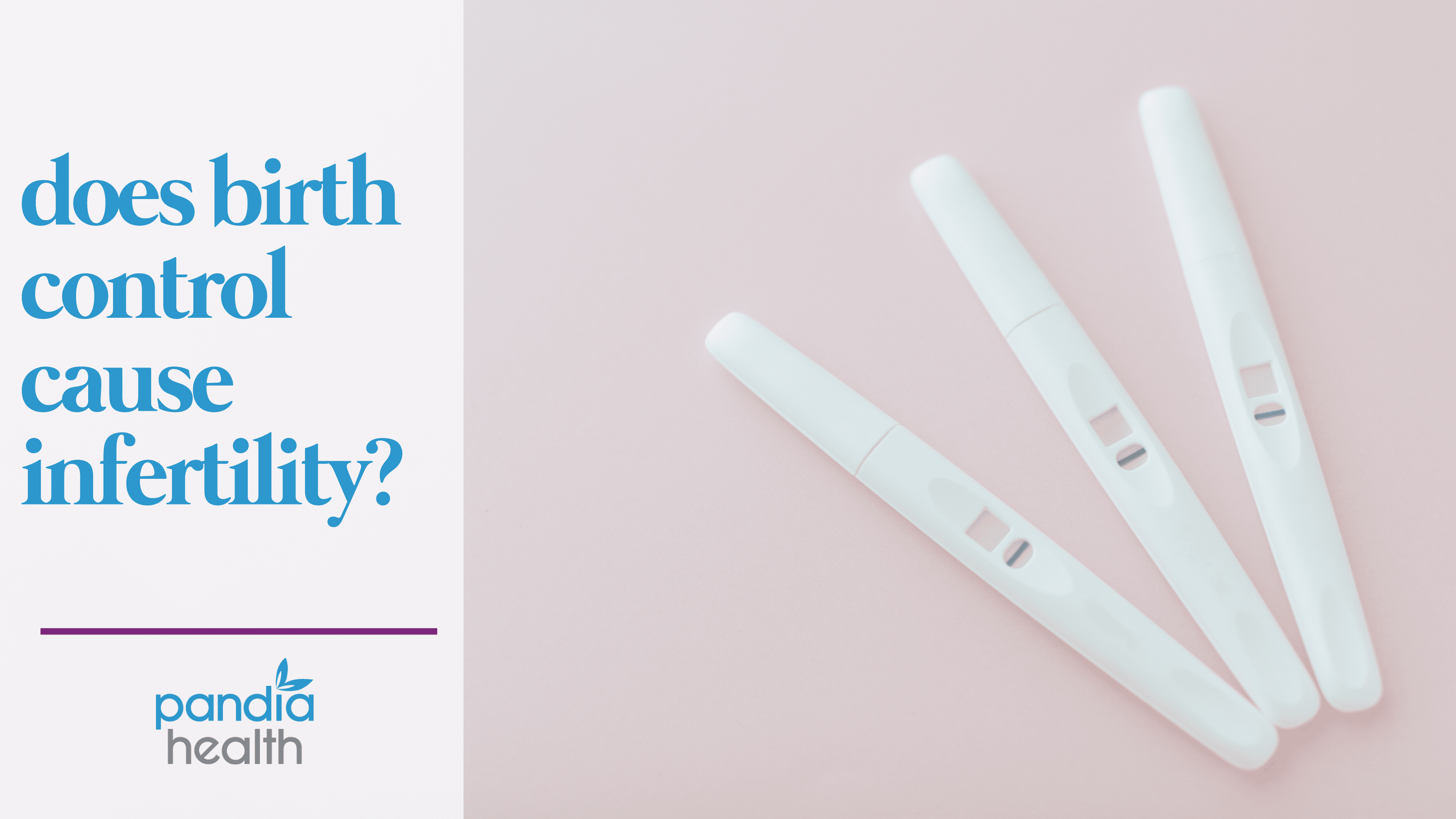Medically reviewed by Sophia Yen, MD, MPH – Written by Pandia Health Editorial Team
If you are considering taking or are already on birth control, the question of whether contraception affects your fertility has most likely crossed your mind. The answer? Yes and no.
When you are on birth control, you are infertile — and that’s the whole point of contraception! Birth control methods, when used correctly, prevent pregnancy as well as can reduce acne and regulate your menstrual cycle. So yes, birth control causes infertility.

Butttt, in the long-term, birth control has no affect on your fertility status whatsoever. So if you’re looking to get pregnant later in life, breathe easy! Sign up online today for Pandia Health to get your birth control prescribed and delivered for free!
PCOS
The reality is, 10% of women have polycystic ovary syndrome (PCOS) which is a hormonal disorder that is caused by infrequent or prolonged menstrual periods or excess androgen levels, thus preventing the ovaries from releasing eggs. For these affected women, they have a difficult time popping out an egg every month which makes it hard to get pregnant once they are off birth control.
Interestingly, the treatment for PCOS is the birth control pill as it normalizes hormones; right after you come off of birth control is actually the best time to get pregnant as you are the most fertile. In this way, PCOS may cause infertility, not birth control (regardless of your contraceptive method).
If you have PCOS, sign up for Pandia Health online today to get your birth control delivered to you for free — it’s safe, easy, and confidential!
Furthermore, conditions like endometriosis, hypothalamic amenorrhea and other ovulatory disorders may not show any symptoms when a woman is on birth control although they affect fertility and may cause a delay once a woman ready to conceive.
Other Birth Control Methods
There is a catch with the Depo-Provera shot — once you stop receiving the injections, it takes roughly 9 months for the hormones to come out of your system. A study showed that of over 2,000 women who quit the pill after using it for approximately seven years, 21% were pregnant in one month and 79% were pregnant in a year.
One contemporary issue is that women are waiting longer to have children, which makes it more difficult for them to get pregnant; for methods such as the shot and the IUD, for example, a woman must wait a few months before trying to become pregnant. Yet, this does not mean that she is infertile but rather that she must wait extra time for the hormones from the birth control to leave her system.
So, if you are currently getting the shot but would like to get pregnant in the near future, it’s best to come off of it sooner rather than later. Another family planning strategy you can try is the fertility awareness method. For this technique to work, a woman must be aware of her body’s natural signs that indicate fertility and use this to prevent fertilization; it can also be used to conceive.

If you are interested in methods that don’t require you to get a period, check out Pandia’s periods optional campaign! Get Pandia peace of mind and clean panties for a looooong time 🙂
For more information on all things related to contraception, family planning, and sexual health, subscribe to Pandia’s YouTube channel! Join the Pandia community and never run out of birth control on our watch!
The above information is for general informational purposes only and is NOT a substitute for professional medical advice. Always seek the advice of your doctor/primary care provider before starting or changing treatment.

